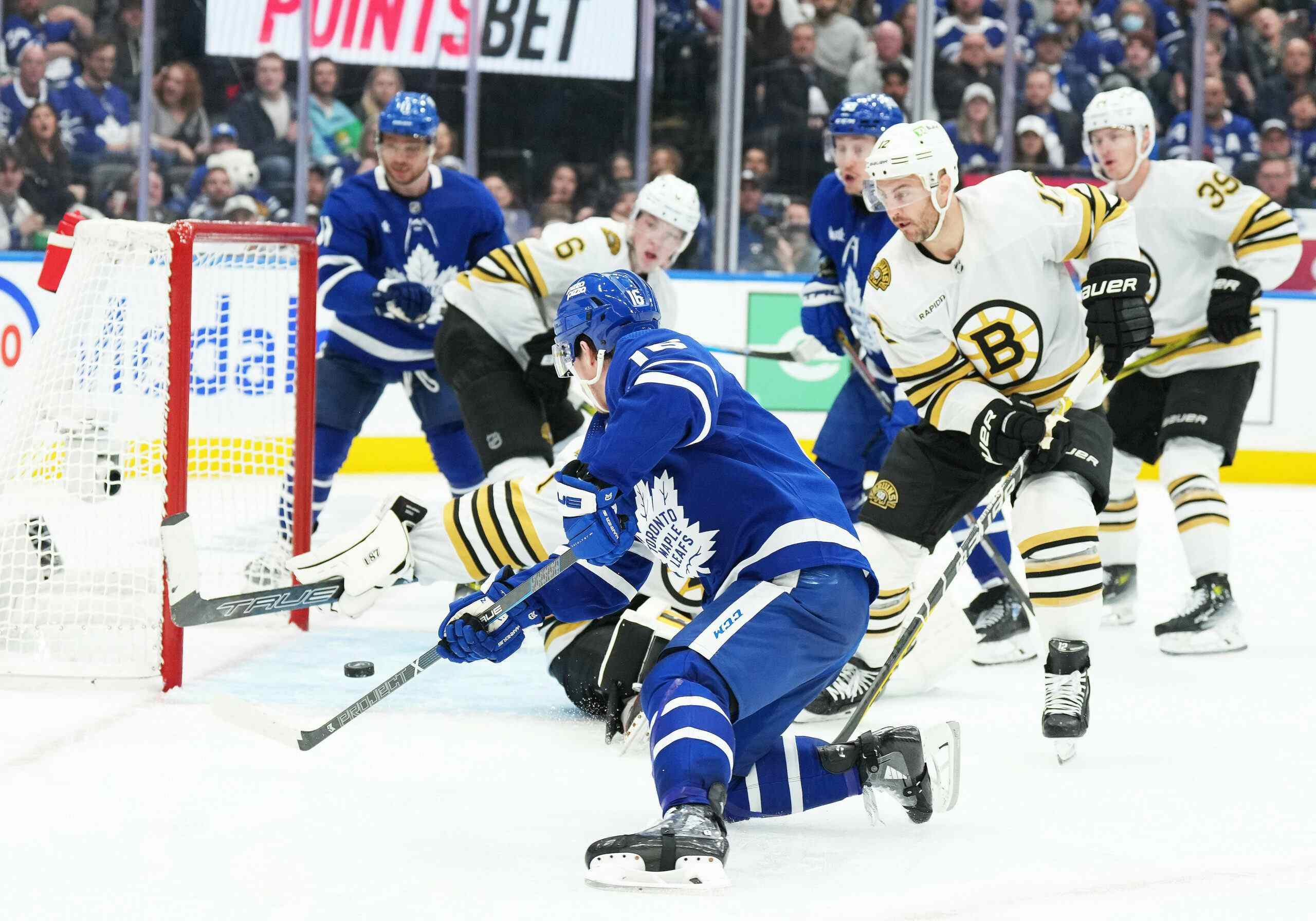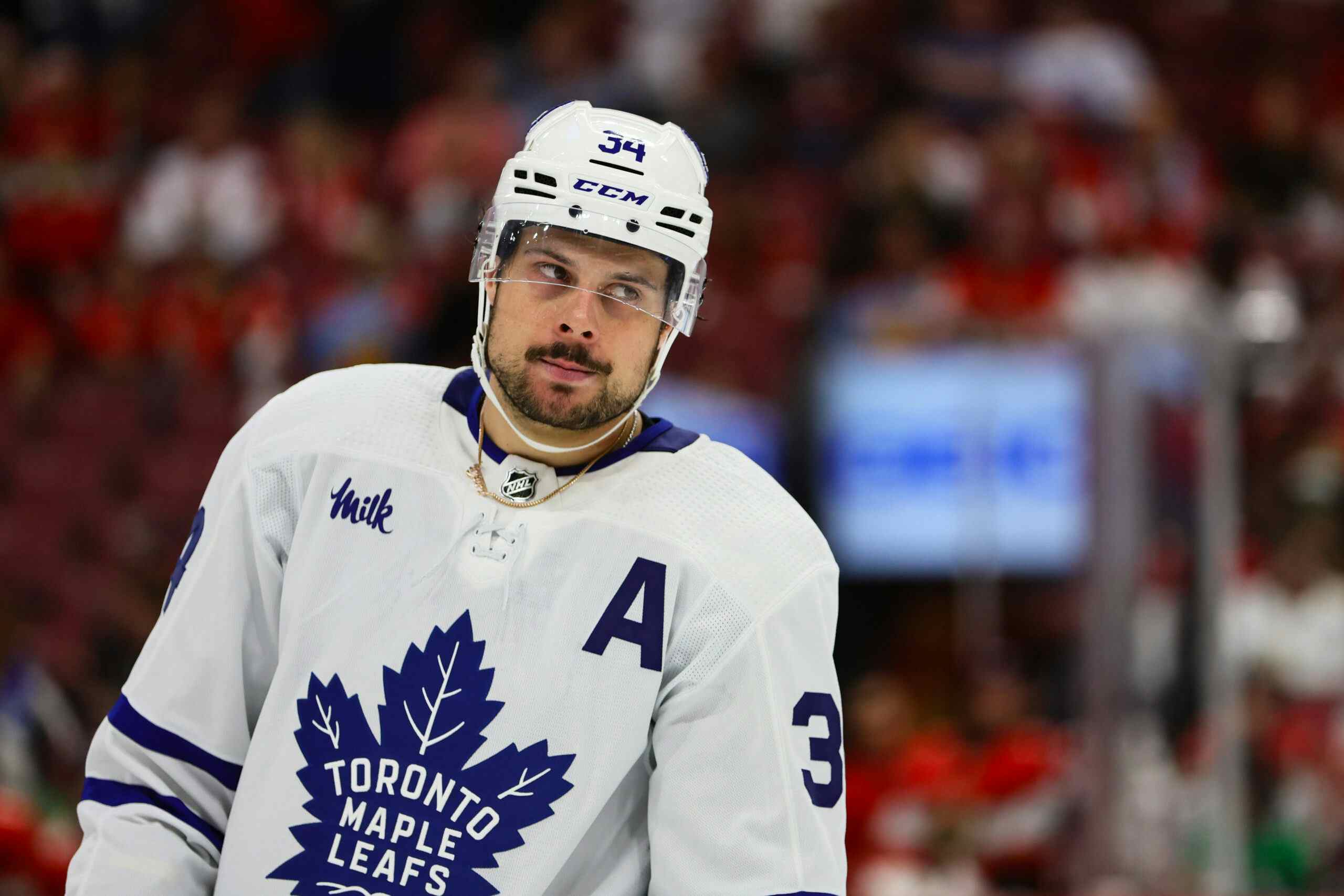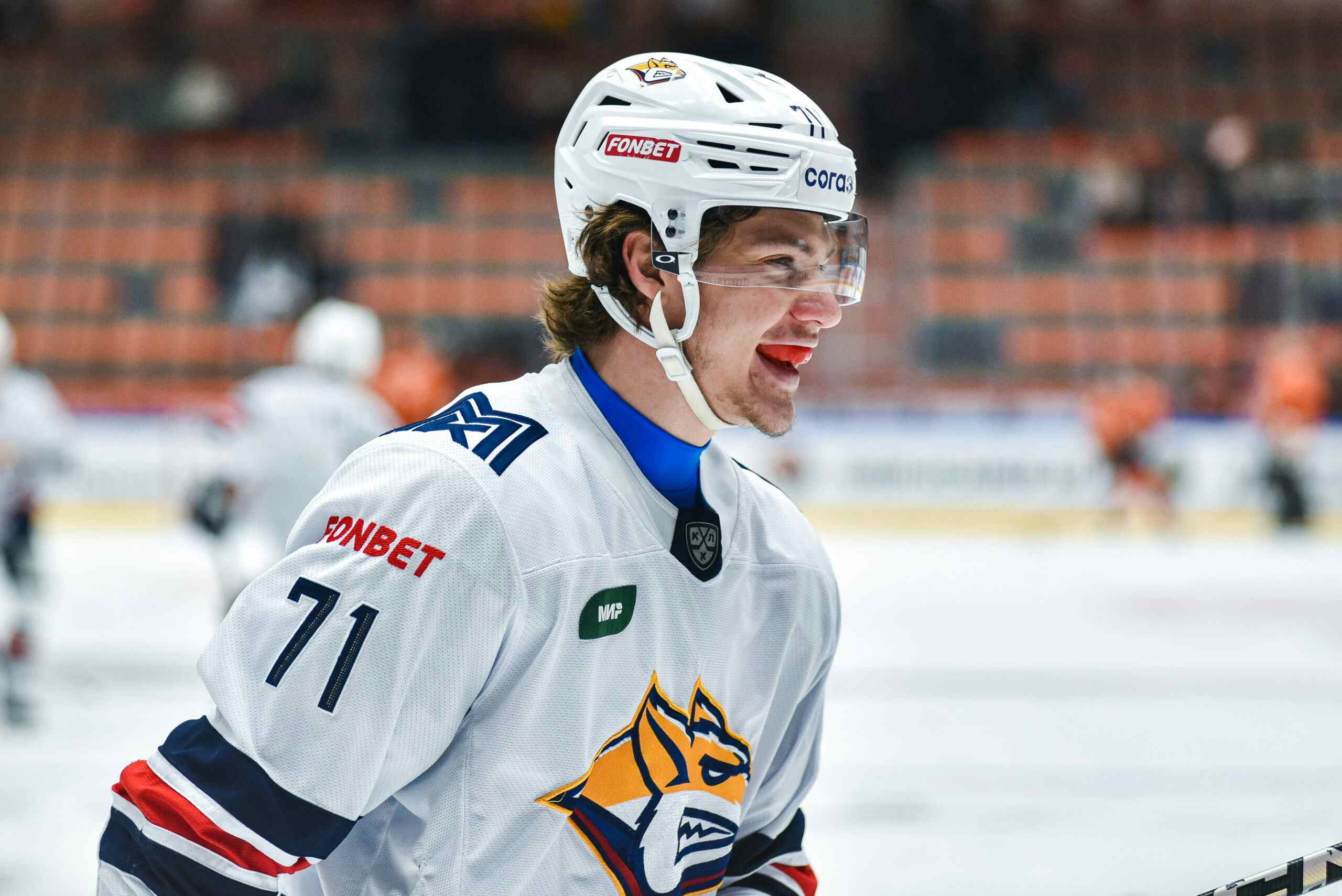On a possible James Reimer extension, or why the Maple Leafs will trade a goalie this year

Photo Credit: John E. Sokolowski/USA TODAY Sports
Over the past month Toronto Maple Leafs goaltender James Reimer has carried an under-skilled team to respectability.
Reimer, 27, is stopping better than 93 percent of all shots faced this season and is fourth among NHL goaltenders who have made a minimum of five starts in save percentage. The Maple Leafs have earned points in 11 of Reimer’s 14 starts. In the nine games in which Reimer has watched the opening faceoff in a ball cap, the club has managed just a single point.
There’s no question that Reimer has been Toronto’s MVP, but the club has reportedly held off on engaging the Manitoba-born goaltender, a pending unrestricted free agent at seasons end, in contract extension talks. Should the club be looking to re-sign the man they call Optimus Reim?
The Salary Cap Question

Though Reimer will surely regress from the .934 save percentage he’s currently carrying (he’s at better than .950 at even-strength) he’s well positioned to post an above average or even elite save percentage this season. If his sturdy recent form continues and if he can stay healthy, the affable 27-year-old netminder is guaranteed to earn a significant raise over the $2 million he’ll earn this season.
There’s no doubt that the Maple Leafs will have the required flexibility to re-sign Reimer, and still hew well clear of the salary cap’s upper limit. Even though presumptive starter (and current backup) Jonathan Bernier is signed for one more season with an average annual value north of $4 million, the club is looking at a wealth of salary cap space this summer.
Toronto has some key restricted free agents to re-sign – 21-year-old defenseman Morgan Rielly and 25-year-old centre Nazem Kadri in particular – but at the moment the Maple Leafs have only $35.3 million in salary cap commitments on the books for next season, according to NHLNumbers.com (not including Nathan Horton and Stephane Robidas, who seem likely to end their respective careers on long-term injured reserve).
The public and the industry as a whole will find out more about where the upper limit of the salary cap is likely to be pegged at the Board of Governor’s meetings in California next month. The best we can do at the moment is point out that the NHL is reportedly projecting $4 billion in revenue this season, which – as outspoken player agent Allan Walsh recently noted – would imply that the upper limit for the 2016-17 season will fall in the $76 million range.
So it’s not as if any sort of looming cap crunch will shape what the Maple Leafs decide to do with their goaltenders, and with Reimer in particular.
The Jonathan Bernier Question

Photo Credit: John E. Sokolowski/USA TODAY Sports
Bernier has struggled enormously in his third season with the Maple Leafs. He’s gone from perceived franchise goaltender to being booed on home ice in the blink of an eye.
The undersized 27-year-old is technically brilliant, but he’s only managed average results during his 183 game NHL career and he’s only stopped pucks at an above average rate in one of his two-and-a-bit seasons with the Maple Leafs so far.
There have been some recent rumblings about rival teams having some interested in dealing for Bernier, and Sportsnet’s Damien Cox suggested this week that the Maple Leafs may have some buyers remorse regarding the two-year $8.25 million pact that they agreed to with Bernier this past summer.
The buyer’s remorse angle is a bit silly. Obviously Bernier has struggled enormously in a small sample in the early going and things seem to be snowballing in a negative direction for him. That can happen for goaltenders over a small sample of work though, and while Bernier may not be a high-end NHL starter, I still think he’s a decent bet to be solid in a 1A sort of role. That’s also roughly what he’s paid to be for this season and next.
Anyway, it’s not as if the club committed significant term to Bernier. If he doesn’t get right, it’s just one more year, and it’s not as if the Maple Leafs plan on contending this season or next.
Looked at another way, you might suggest that between Reimer and Bernier the Maple Leafs employ a tandem that seems like a decent bet to provide them with roughly average goaltending. The Maple Leafs have ranked 12th in 5-on-5 save percentage since acquiring Bernier and 15th in all-situations save percentage.
Bernier’s $4.125 million ticket may make the prospect of re-signing Reimer a bit difficult to swallow, but it isn’t all that uncommon for teams to invest $7-8 million in net. 13 NHL teams are currently employing a goaltending tandem that costs in excess of $7 million against the cap, according to NHLNumbers.com, with five teams above $8 million.
The Durability Question
In assessing Reimer’s value and upside, the big thing that stands out is how few games Reimer has actually played.
The six-foot-two netminder was drafted almost a decade ago, way back in 2006. He hasn’t appeared in 60 games or more in a single season since the 2006-07 season when he was a member of the Red Deer Rebels.
Since then Reimer has appeared in more than 40 games on only two occasions: during the 2008-09 season in which he played 59 games for the Toronto Marlies and three different ECHL clubs; and the 2010-11 season where he appeared in 57 games between the Marlies, Maple Leafs and Canada’s World Championship team.
To some extent Reimer’s inconsistent usage has reflected his status as an occasional backup. It also reflects the fact that Reimer has dealt with multiple head injuries, an MCL strain and an upper-body injury over the past few years.
More than Reimer’s lack of consistency or his perceived weaknesses – remember the slow-glove hand meme? – I’d think his shallow track record as an everyday starter will restrain his overall value on the free agent market.
How good is James Reimer?
Reimer is a solid goaltender. He’s prone to the awkward-looking goal against, no doubt, he’s a poor puck handler and he doesn’t get any points for style. The man with the Transformer’s inspired nickname really only does one thing well, but it’s an important thing: he stops pucks shot by NHL shooters at an above average rate.
Of the 71 NHL goaltenders who’ve logged at least 1500 minutes since the most recent NHL lockout, Reimer ranks 27th in all-situations save percentage, according to stats.hockeyanalysis.com. His .916 save percentage over the past four years (including this season) narrowly trails Bernier’s .917 save percentage, but is ahead of more highly regarded netminders like Devan Dubnyk, Antti Niemi, Jonathan Quick, Pekka Rinne, Ryan Miller and Jimmy Howard.
Now, of course, the thing with Miller, Howard, Rinne, Quick and Niemi is that you know they can give you that reliably above average performance in 60 games per year. You can’t say that with confidence about Reimer.
The fact remains that Reimer is probably an above average puck stopper. He’s a useful piece. He’s proving it again this season.
The Pipeline and the Market

Photo Credit: Christian Bonin/TSGPhoto.com
In judging whether or not Toronto would be better off to let Reimer walk or to re-sign him, we have to ask the replaceability question. If the Maple Leafs were to allow Reimer to walk as a free agent this summer, are there options to easily replace what he brings to the table?
Personally I consider Reimer and Bernier to be roughly comparable assets. Reimer is having the better start to the season, but looked at in the totality of what they’ve managed in their respective NHL careers, I think it’s a push as to which netminder is likely to provide average goaltending in any given season going forward. So if you’re judging Reimer as the club’s starter, there’s definitely a replacement option signed and ready to go in-house.
Below the NHL level the Marlies have a pair of goaltenders in Antoine Bibeau and Garret Sparks. Sparks and Bibeau have split time at the AHL level this season, and Sparks has managed the much better results – with a .938 save percentage in 11 appearances this season to Bibeau’s .873 save percentage in nine games played.
Over 1025 shots faced in AHL action over four seasons, Sparks has managed a sparkling .924 save percentage. Bibeau, meanwhile, has managed a pedestrian .905 save percentage on 1171 shots faced over two seasons. The samples are still too small for us to say anything definitive, but they do imply that Sparks may be an NHL option in short order while Bibeau will need more time.
In terms of the free agent market, the options are pretty limited. Reimer, in fact, may be the top goalie available should he continue to play well. Other names that are likely to be available include Jonas Hiller, Jhonas Enorth, Cam Ward, Ben Scrivens and Alex Stalock. I’d wager, honestly, that Reimer is the best of those options, though I have time for Enroth and Hiller too.
The Maple Leafs have some time to evaluate their in-house options before committing one way or another to a specific course of action, and they should use it. Perhaps Bernier can retrieve his game, perhaps Reimer stumbles or gets hurt again, or perhaps Sparks continues to dominate AHL shooters. Any of those not-so-unlikely outcomes could reasonably alter the equation for the Maple Leafs.
Value, Value, Value
The final area we should consider here is the value aspect. What is Reimer likely to cost the Maple Leafs on his next contract? What is he likely to return in a potential trade?
The answer to this loaded question will be determined, in part, by how Reimer fares over the balance of the year. If he continues to play well and, almost more importantly, stays healthy and starts the majority of games for the club – appearing 55 times or more – he’ll have provided an answer to the major remaining concern any potential suitor would have about his abilities.
If we look over what recent unrestricted free agents have signed for, it seems like the market for not-quite workhorse starter-type goalies is capped at about $4.5 million. That’s what Jonas Hiller got from the Flames in the summer of 2014, it’s what Antti Niemi got from Dallas this summer, it’s roughly what the Maple Leafs gave Benier to avoid arbitration, and it’s even the range in which Devan Dubnyk ultimately signed for with Minnesota (though the Wild gave Dubnyk a bunch of term).
We can look at $4.5 million as the high-water mark for Reimer, since all of the aforementioned netminders had a longer track record of starting the majority of games for their teams. If the rest of his season unfolds perfectly, I’d suspect Reimer could get there. Even if he plays in only 45 games, avoids injury and starts to come up against the forces of regression in a major way, I’d think his floor is in the $3.5-$3.75 million range.
So if the Maple Leafs opt to extend Reimer they’ll be allocating somewhere in the neighbourhood of $8 million in goal for next season. That’s the price range of an elite goaltending tandem, which probably isn’t what Bernier and Reimer are.
In terms of Reimer’s trade value, this one is open and shut. Cam Talbot netted the New York Rangers a trio of draft picks at the 2015 NHL draft, but that was a wild overpayment by the Edmonton Oilers. Talbot is the only real exception to a rule that’s been demonstrated over and over again by the likes of Eddie Lack, Dubnyk, Enroth, Scrivens and Michal Neuvirth: that goaltenders on the verge of unrestricted free agency are worth roughly a third-round pick on the trade market.
Maybe if Reimer keeps up his otherworldly level of play the Maple Leafs can do a bit better than that at the trade deadline.
Conclusion

Photo Credit: John E. Sokolowski/USA TODAY Sports
It’s not even December yet, so the Maple Leafs have some time to work out what they want to do in net. The trade deadline is three months away and there are seven months until the opening of the free agent market.
In addition to the luxury of time, the Maple Leafs have a variety of decent options to consider and flexibility under the upper limit to execute any of those options.
Depending on how the club decides to proceed, they could deal Reimer or Bernier before the deadline (either goaltender is likely to net the club a third-round pick in a deal, though Bernier’s value is at a low ebb) or they could re-sign Reimer and return their current goaltending tandem at a very high price point for one year.
Time is nice to have, but this is a global-type decision that, one way or the other, the club would do well to make prior to the NHL trade deadline. If they’d prefer to deal Bernier, the draft is the time to do it. If they’re going to deal Reimer, then they have to do it prior to the trade deadline. Either way, this is a looming decision for the organization.
The most prudent approach is likely to decide which one of Bernier or Reimer the club would prefer to be their 1A netminder, and deal the other. Considering how variable goaltending performance is – as both Bernier and Reimer have demonstrated dramatically in recent seasons – investing too much money in non-elite goaltending is a suboptimal allocations of resources.
And anyway there are likely to be some serviceable low-cost options on the free agent market, and there’s an intriguing in-house option in Sparks.
The Maple Leafs are still in an accumulation phase of their rebuilding cycle. With their current goaltending situation, the club has an opportunity to turn a netminder into an asset while still maintaining a tandem that’s a decent bet to provide the club with average performance. It’s an opportunity they should seize.
While I have no sense of what the Maple Leafs will look to do with Reimer or Bernier, just looking over the fundamentals, I’d be mildly surprised if the club didn’t look to trade a NHL-level goaltender at some point this league year.
Recent articles from Thomas Drance






